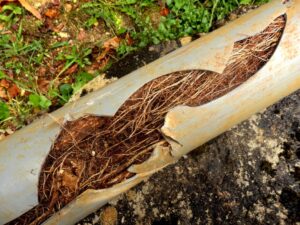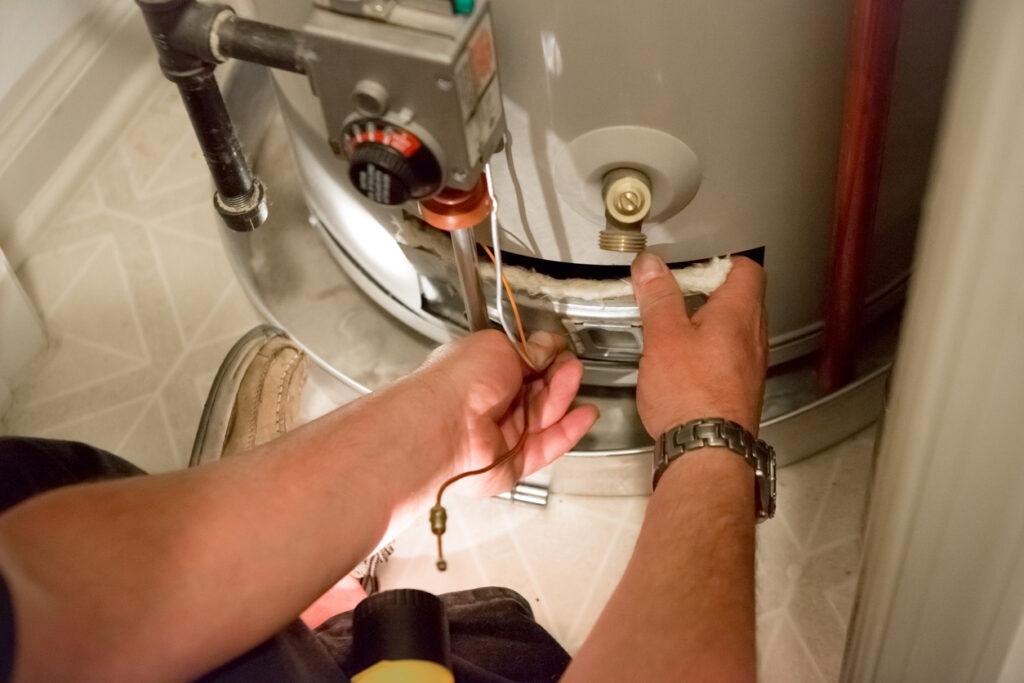The Impact of Tree Roots on Your South Carolina Plumbing System

In the South, we cherish our green, tree-filled yards. However, those beautiful trees come with a price. Their roots can wreak havoc on your plumbing system by infiltrating your sewer lines.
At Meetze Plumbing, we’ve been helping homeowners in Columbia, SC, and the surrounding areas handle tree root damage for over 40 years. In that time, we’ve learned a thing or two about how tree roots can impact your plumbing and what you can do about it to avoid costly repairs.
How Do Tree Roots End Up in Sewer Lines?
Tree roots naturally seek out water and nutrients, and your sewer lines are an irresistible source. Small cracks or joints in your sewer pipes can leak wastewater, attracting roots that eventually grow into these openings.
As the roots grow and expand, they can cause significant damage by cracking, clogging, or even breaking the pipes completely.
Residential Plumbing Problems Caused by Tree Roots
Tree root infiltration can lead to a variety of plumbing issues. Below are the most common problems we see caused by tree roots in South Carolina homes:
- Clogged drains: Roots can block the flow of wastewater, leading to slow drains or backups.
- Sewer line damage: The pressure from growing roots can crack or break sewer lines, leading to leaks or complete pipe failure.
- Frequent backups: Persistent root problems can cause recurring sewer backups, creating an ongoing nuisance and potential health hazard.
- Odor issues: Damaged sewer lines can release unpleasant odors into your home or yard.
Signs of Tree Root Infiltration in Your Sewer Line
Early detection of tree root infiltration can save you from extensive damage and costly repairs. Watch for these signs that tree roots may be invading your sewer lines:
- Slow drains: If multiple drains in your home are slow, it could indicate a blockage in the main sewer line.
- Frequent backups: Repeated backups in toilets or drains, even after cleaning, may signal a deeper issue.
- Gurgling noises: Unusual sounds from your toilet or drains can be a sign of a blockage.
- Lush patches of grass: Extra green or lush areas in your yard can indicate a leaking sewer line providing extra nutrients to the plants in that spot.
- Foul odors: Persistent sewage smells in your yard or home often point to sewer line damage.
Tips on Preventing Tree Root Problems
The good news is that there are preventive measures you can take to help protect your sewer lines from tree root infiltration. Follow these tips to safeguard your plumbing system:
- Regular inspections and maintenance: Schedule annual plumbing inspections and invest in regular maintenance to catch potential problems early.
- Careful landscaping: Avoid planting trees or large shrubs near sewer lines. Consult with a professional about root barriers if planting near pipes is unavoidable.
- Proper watering: Ensure trees and plants receive adequate water to discourage roots from seeking out sewer lines.
- Pipe maintenance: Replace old or damaged pipes with modern, root-resistant materials.
Solve Your Tree Root Problems With Meetze Plumbing
Your beautiful, tree-filled yard doesn’t have to come at the expense of your plumbing system. By staying vigilant and partnering with Meetze Plumbing, you can keep your plumbing in top condition while enjoying the beauty of your landscaping.
We’ve been trusted by homeowners across the Midlands since 1981 for our reliable, same-day services and transparent, upfront pricing. If you suspect tree root infiltration in your sewer lines, contact our expert team for quick and effective solutions.
Contact Meetze Plumbing today for tree root inspection and sewer line repair in the Columbia, SC, area.
"*" indicates required fields






